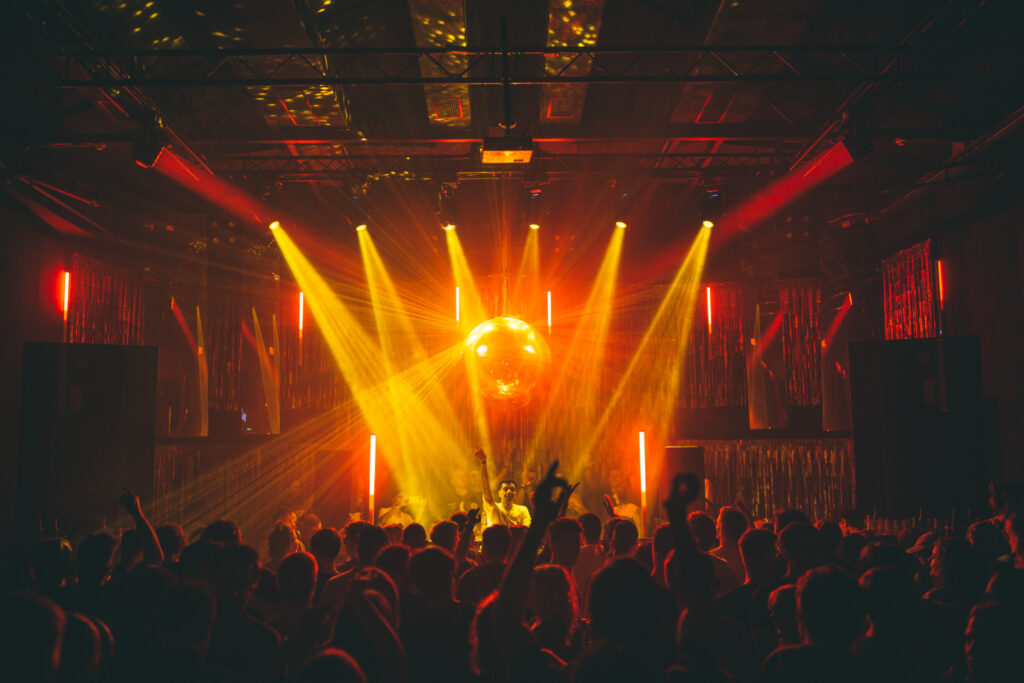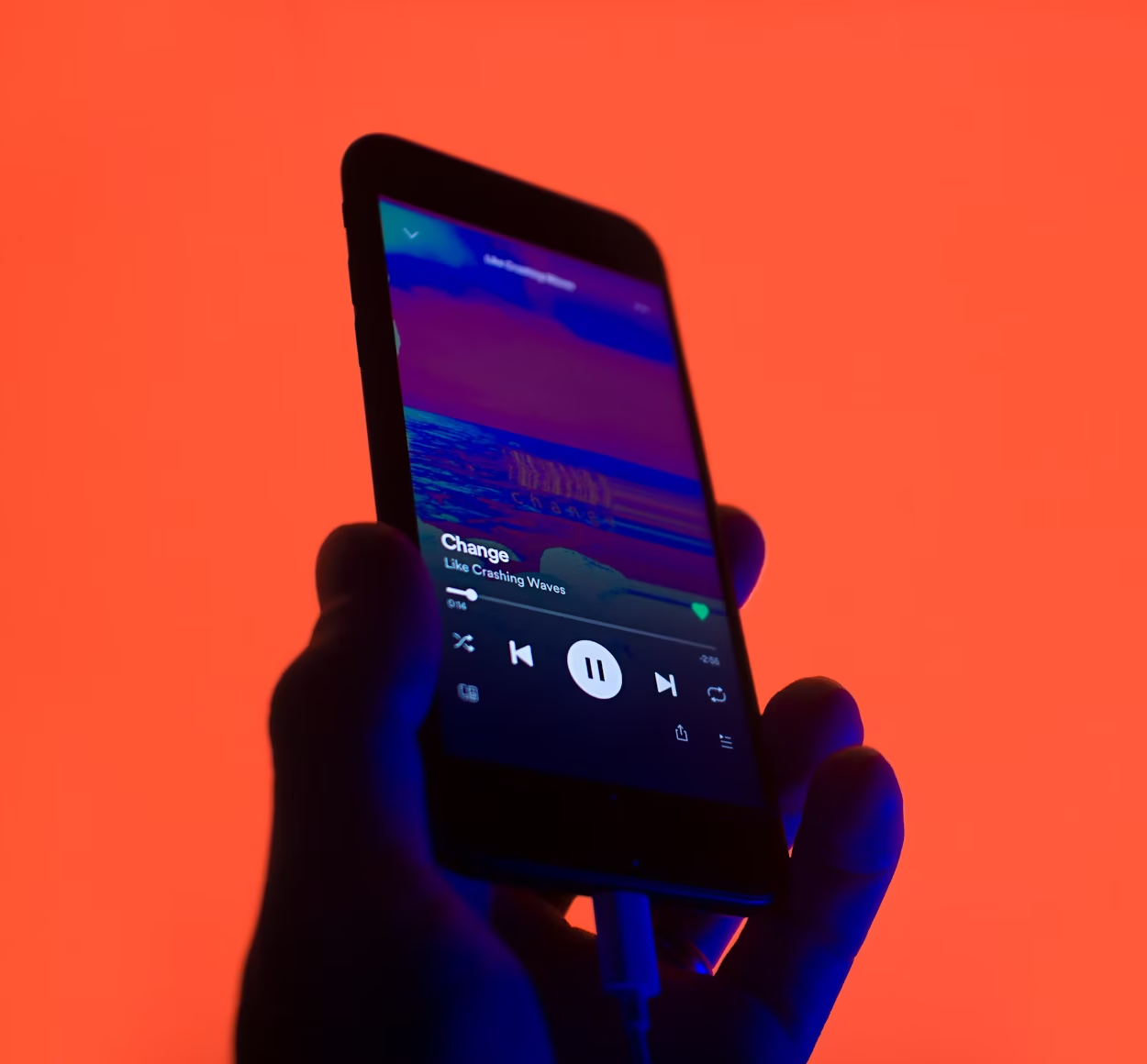In case you’ve been to Zagreb in the past two years, you’ve probably heard of Peti Kupe, a current hotspot for everyone interested in music and arts. Even though it may not seem like it when you enter the venue now, Peti Kupe has formerly had an entirely different purpose. A former warehouse by Croatian Railways was not in use for years, so the City of Zagreb decided to rent it to a private company, and published a tender four years ago.
The opportunity was quickly noticed by two long-term friends and music industry professionals, Antonio Žuža and Vedran Rako, who successfully developed a project and a vision of the new multifunctional hub aimed to blend arts, music, educational events, and gastronomy in one place. Located in Trnjanska cesta no.5, the new owners decided to preserve a part of its history and called it Peti kupe (the fifth compartment coach). Two and a half years ago their ride began, offering their passengers a whole range of culture, music, and arts.

When entering its cube-shaped burgundy building, many elements convey their vision clearly, the dark indigo interior withholds an impressive sound system, all of the elements are on wheels and the place can transform for all purposes of events. Kupe has a state-of-the-art kitchen and a gallery (VIP section) that withholds art and posters by some of the most influential Croatian artists, such as Boris Bućan.
We sat in their office and talked about the local scene, past and future of Peti Kupe.
In your previous interviews before the club opening, you explained your vision of Peti Kupe as a blend of music, arts, education, and gastronomy. Over two years have passed, what is your vision today? Did you accomplish everything you planned?
Antonio: Yes. We always wanted to create a multifunctional hub that can serve more purposes, from clubbing, concerts, exhibitions, seminars, theatre performances and other cultural events. We organised many of those but still missing the gastronomy part, which we are working on at the moment. I believe we will have everything ready by next spring when we open the terrace in the backyard. Our concept will be different than some similar gastronomic venues, as it will not be like a typical restaurant or bistro. We are maintaining our vision and our goals, and we plan to keep it that way.
Last year the audience proclaimed you as the best indoor club in the region and you got the Ambasador award. What did it mean for you? How do you adjust your program to the local audience?
Vedran: When we got the nomination, we did not ‘push’ the information in media, ads, and on our socials as we wanted to see how the audience responded without our invites to vote. We wanted to see what would happen, and the audience chose us, so we were really honored with their choice. This is a 500+ capacity club. Over the past ten years, Zagreb has had clubs that have a capacity of a maximum of 200 people besides Bogaloo. But also, when it comes to genres and types of events, it is necessary to have a colorful program to keep the club running, it is not realistic to push only electronic music events day-by-day in Zagreb.
Antonio: We are happy that the audience recognised us and our work. We believe that they recognized our program as a modern concept of electronic music and concerts, in which we are trying to build our type of sound and direction. When you are doing something new, it’s always a 50:50 chance as you don’t know what will go well with the public. Sometimes we are surprised with a concert for which we anticipated less interest, and sometimes it’s the other way around. Nevertheless, the atmosphere remains the same and the core people who come to a certain type of concert event always show up. As per clubbing events, we created our niche in which we promote more underground DJs who play at most European clubs, as residents of Berghain, etc. On the other hand, many collectives organise their parties at our venue, so we have many subgenres as melodic and industrial techno, house to commercial events as R’n’B confusion. To sum up, we want to be a venue where locals and tourists can always come no matter the event and they can expect quality music and event concept. Our program will continue to develop in the same direction with slight ‘corrections’ based on inputs and lessons we learned over the past two years, such as the number of attendees for a certain type of event, how to schedule each event through the months, etc. When it comes to Zagreb’s audience, there are not many people. We learned that it is not good (profitable) to have a clubbing event two days in a row, so now we are mixing it up and having different types of events in one weekend.

How do you shape the program of Peti Kupe, including residential and the ones you host?
Antonio: It’s a teamwork. As per our clubbing program, Discoton, Imogen and Sequences, we discuss it here in the office and explore other clubs’ lineups. Even though I am the program manager, we go through the segments internally and create concepts together. Peti Kupe is a hub that connects various cultures and subcultures, so when it comes to other collectives and event organizers, it’s always a personalized approach. Some of them have been with us since the beginning and will always have an open door. Our program criteria are very open, we are willing to collaborate with collectives and organisers who can bring the audience, fill the club, and are doing something that ‘fits’ in our venue. Basically, we are not organising turbo folk concerts or mainstream EDM. We respect all genres and types of music, but some are simply not in line with our brand.
Zagreb’s Trends & Variety of Events
Both Žuža and Rako have been on the local scene for over 15 years. Besides running the club program, Antonio Žuža is a music producer and owner of a record label Imogen with Ilija Rudman. When it comes to juggling between club management and music production, Žuža points out that it gets challenging as running a venue like Peti Kupe takes a lot of time and energy, but still, creating music is something he couldn’t live without. For him, it’s the escape into his world where he can release his creativity.
Vedran Rako has been DJing for over a decade, but besides the club’s program, he manages the private and corporate events. As the space is characterized by its multifunctionality, Rako points out that the club transforms within a day. „For example, we had 25 events in 31 days of December. Each time it was a completely different story, we hosted big corporations with serious productions, and we managed to transform the club in a couple of hours daily. Financially speaking, it is a crucial part of the club’s existence. It provides financial security and allows us to develop our programs even more. Also, it is beneficial to Peti Kupe brand to be connected with huge players in the market. Those events can also be very special, such as Chanel’s new perfume promotion or Lokomotiva’s fashion show“

As Peti Kupe blends all types of events promoting various genres, have you noticed some trends in the past two and a half years? What type of music is trending in Zagreb at the moment?
Antonio: Yes, the faster BPM is definitely trending, in Zagreb and on the global scene. As per our residential program, we have Sequences promoting darker and underground electro, new wave and techno, Discoton event in which we hosted Greg Willson, Joey Negro and many other great producers in disco/house genres, and Imogen showcasing the label’s house sound. We found our niche, not fully mainstream. We hosted DVS1, Rodhad, Ellen Allien, or HUSH event DJs – that’s the techno we are promoting in Kupe. Trends are always changing and we don’t follow them blindly. Even though we might have more techno lineups now, things will probably change in a year, that’s also why we collaborate with other local DJs, collectives, and promotors who bring a fresh approach to each event. Now some say we should be more like Berlin. Zagreb is not Berlin, we shouldn’t copy or compare it to anyone – it has its scene and that’s something every city has to have.
Vedran: Techno is the main trend at the moment, but we are not adjusting to trends in our club program. But again, the events that we host provide the variety that we, as a club want and need. As per our residential program, we bring serious DJs with serious backgrounds and musical opus. We are Zagreb and we are trying to build our story, promoting its culture and scene – that’s the main point of Peti Kupe. Zagreb has had its scene since the 70s, and we are trying to keep it alive. In the past 10-15 years the clubbing scene has decreased, turbo folk became predominant, and the offer of cultural and clubbing programs has been seriously reduced which affected younger generations who are between 20 and 30 years old. In my opinion, they were led in the wrong, completely different direction, and we wanted to bring back the clubbing and scene that Zagreb used to have.
What was the main reason for the downfall? What does the scene lack?
Žuža: In my opinion, Zagreb’s scene is not necessarily lacking people as it misses content. I mean music played and created by our DJs and producers that people know and recognize. There is not enough serious music production that will create interest. You won’t go to a local DJ’s gig because you haven’t heard their new track on the radio or someplace else. We don’t have it – it got lost. Also, unfortunately, our music education institutions do not teach about electronic music, which is very often neglected in the general educational system. Even though we have great potential as a scene and country, we don’t take the opportunity and many don’t see electronic music as an industry. Foreign brands are coming to organise festivals on our coast, while our neighbours, like the EXIT team in Serbia, organise their ones.
Vedran: I think Croatia has the best festivals in the world at the moment as the best brands in the industry come to our coast. Thousands of producers from around the world are coming to the country during the three months of the summer season. While tourists and fans are flying in like crazy to attend them, maybe there are 2% of Croatians, who have privileged tickets, are coming to those festivals.

What is your advice for young DJs or collectives?
Žuža: To be a great DJ you have to have experience, know various genres, and be dedicated. It’s not something that happens overnight, so you need to have a plan and set realistic goals. Also, in case they are into music production, it’s good to save some money for the studio equipment which evolves over the years. It’s just consistency. Even if it’s a bad event, you have to move forward and maintain ‘the drive’. For example, I’ve been wanting to open a club for 15 years, and it came at just the right time.
Rako: I had seven serious business plans for a new club before this, and even though the plans almost came through something would come up and the projects were stopped. It’s not an easy process, but it’s important to be persistent and dedicated to your goals.
After two and a half years, the owners believe that Peti Kupe is switching to a ‘new wave’ as they planned the best program so far for the upcoming season.
The future of Peti Kupe holds many exciting new projects, such as upgrading the club’s equipment, opening a new terrace, setting up a record label to promote local talents, and doing live streams with DJs every month.
„Enthusiasm is still very present, we will do our best to enhance the club, enrich the program and build the scene“, they promised. If you ask us and the audience, they already delivered.


